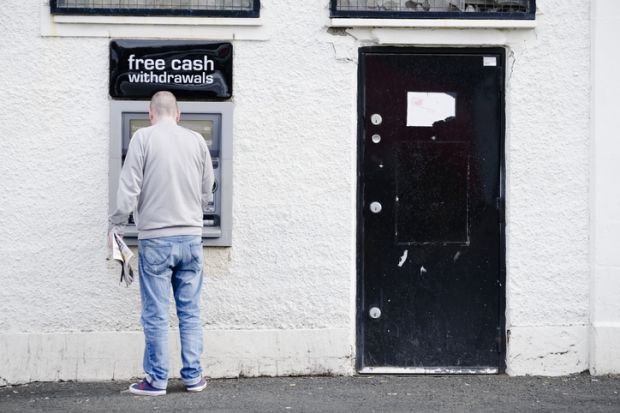UK universities have expressed “near unanimous” support for reversing cuts to the sector’s biggest pension scheme and have urged fund managers to “fast-track” lowering contributions and restoring benefits.
Earlier this year, the Universities Superannuation Scheme (USS) said its improved financial position meant that member benefits could be restored to pre-April 2022 levels at the same time as lowering employers’ and employees’ contributions from the current level of 31.4 per cent of salary to just 20.6 per cent.
Vice-chancellors had pushed through cuts to benefits in April 2022 amid warnings that the fund faced a multibillion-pound deficit, triggering long-running industrial action – but the USS is now projecting a £7.4 billion surplus.
Responding to the USS’ consultation on the proposals, Universities UK says its members had “expressed near unanimous support” for lowering contributions and restoring benefits.
And it urges the USS to move more quickly on making the changes if it can, noting that the improvements are currently not due to be implemented until April 2024.
In a letter to the USS chief executive, Carol Young, UUK’s chief executive, Vivienne Stern, notes that employers and staff “are currently overpaying contributions”, pointing to the 6.2 per cent of salary that is currently levied as a “deficit recovery contribution” (DRC) and is now “unnecessary”.
“Acknowledging the current cost-of-living challenges faced by members, and the significant financial pressures faced by many scheme employers, respondents stress the importance of reducing contributions to the level required as soon as possible, or at the very least removing the DRC element as an interim position,” Ms Stern writes.
“We are ready to support the USS trustee with a high priority consultation with employers on a new/revised schedule of contributions, with an expedited timeline, in order to facilitate an earlier change to member and employer contribution rates.”
UUK said the changes should mean that a scheme member earning £50,000 will pay £1,750 less a year – £145 less a month – for their pension, with staff contributions dropping to 6.1 per cent of salary.
“We continue to work closely with the union and USS to fast-track lower contributions and improve benefits. We hope these changes can be implemented as quickly as possible to help both scheme members and employers facing serious financial pressures,” Ms Stern said.
“The significantly improved economic conditions for defined-benefit pension schemes has led to this dramatic upturn in the scheme’s financial fortunes, paving the way for these positive changes. We are also looking to the future by fully exploring, with USS and [the University and College Union], a range of options for creating greater scheme stability, including alternative scheme structures and USS governance reform.”
Speaking when the proposals were announced in July, the USS chair, Dame Kate Barker, told Times Higher Education that she had no regrets about the 2020 valuation that led to the increases in contributions and cuts to benefits.
“I don’t think there was any alternative to making the changes that happened. I don’t look back at that and think it was a mistake. But I am obviously pleased today that the financial conditions have improved and we are able to produce a much more favourable set of numbers,” she said.
Register to continue
Why register?
- Registration is free and only takes a moment
- Once registered, you can read 3 articles a month
- Sign up for our newsletter
Subscribe
Or subscribe for unlimited access to:
- Unlimited access to news, views, insights & reviews
- Digital editions
- Digital access to THE’s university and college rankings analysis
Already registered or a current subscriber? Login






